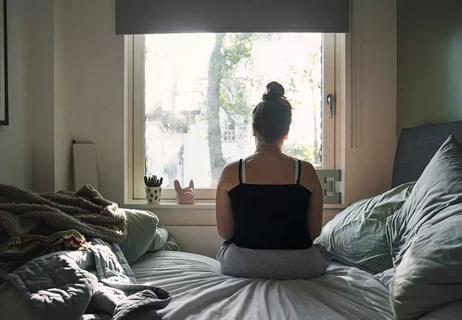Depression is tough on a relationship — here’s how to get through it

While depression can wreak havoc on a relationship, it can also strengthen a couple’s bond. Clinical psychologist Adam Borland, PsyD, shares how you can help a depressed spouse — and yourself — so you can get through the tough times, together.
Advertisement
Cleveland Clinic is a non-profit academic medical center. Advertising on our site helps support our mission. We do not endorse non-Cleveland Clinic products or services. Policy
Looking for early signs of depression in your partner can feel like a game of “Where’s Waldo?” — subtle clues are often hidden in the background noise of the daily grind.
“That’s where proximity comes into play. You see this person on a daily, if not hourly basis, so you have to be aware of small changes that take place over time,” Dr. Borland explains. “These are things that you’ll recognize and say, ‘Hmm, that seems out of character.’”
Signs of depression in your partner might include changes in:
If you suspect your partner is dealing with depression, Dr. Borland recommends these five action items:
Depression is treatable. So rather than ignoring the problem or trying to fix it yourselves, enlist the help of a primary care doctor or psychiatrist.
Depression can be hard to talk about. It helps to work on assertive communication. Share your feelings and concerns without playing the blame game. Start sentences with “I” statements that focus on your feelings, such as, “I noticed,” or, “I’m worried.” Talk openly about symptoms you’ve seen and how you want to help.
Advertisement
Marriage is a team sport — both in good times and bad. “We don’t want partners to branch away from one another,” says Dr. Borland. “To avoid this, it’s important to show unconditional support. Express things like, ‘I’m in this with you. You’re not going to scare me. I’m not going to allow you to push me away.’”
If talk therapy is part of your partner’s treatment, join their first few sessions — or more. Your partner may also want you to participate in meetings about medications.
“Being depressed can be scary,” Dr. Borland relates. “Your spouse will benefit from all the support you can offer.”
Maintain your own health and well-being. You may also benefit from your own outpatient therapy. “This is not you being selfish; it’s making sure that you have enough in your tank to help your partner and family,” Dr. Borland reassures. “You need to carve out time for yourself without feeling guilty.”
Depression isn’t anyone’s fault. Give your partner a sense of security and support even when they’re acting out. This takes patience and commitment — but it’s worth the effort.
“Respond to your partner’s anger or frustration with assertive communication,” Dr. Borland says. ‘‘Say things like, ‘I see that you’re angry. I see that you’re sad. But remember I’m here whenever you need to talk, and I’m not going anywhere.’”
Your partner needs patience and unconditional love. Learning about depression and the treatments that are available makes it easier to display both. You’re also able to speak from a place of knowledge and better understand the ebb and flow of the treatment process.
To make your relationship the best it can be, Dr. Borland recommends attending couples counseling and doing small activities together regularly, whether that’s cooking a meal, seeing a movie or tackling a neglected DIY project
Depression is like a leaky basement. So work on repairing the cracks and other damage to your foundation to prevent irreparable harm. You can strengthen and protect your relationship — even in the face of depression.
Advertisement

Sign up for our Health Essentials emails for expert guidance on nutrition, fitness, sleep, skin care and more.
Learn more about our editorial process.
Advertisement

Major life events and trying times can trigger reactive depression symptoms, like prolonged sadness, irritability and hopelessness

Sitting near a light box for about half an hour a day can help treat this form of fall/winter depression

Light therapy can boost sleep and help fight depression

People with high-functioning depression may not seem depressed on the outside, but the condition can cause turmoil on the inside

More than just ‘deep sadness,’ this complex condition is often a whole-body experience

Learning your warning signs can help push back against an episode of depression

If you experience warm weather seasonal depression, you’re not alone

Cozying up with friends and family can make cold, dark days more meaningful

Even small moments of time outdoors can help reduce stress, boost mood and restore a sense of calm

A correct prescription helps your eyes see clearly — but as natural changes occur, you may need stronger or different eyeglasses

Both are medical emergencies, but they are very distinct events with different causes